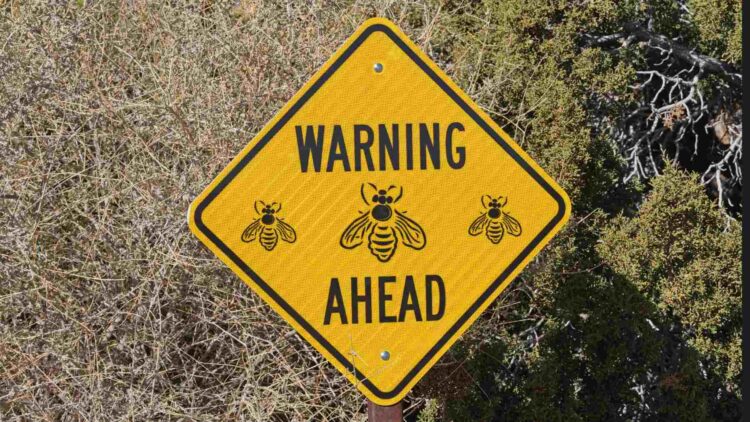Honeybees are protected, and it is not a secret why. They are an integral part of the environment and do an enormous labor pollinizing and creating delicious honey for us to consume. But not all bees are created equal, and, in fact, some of them are quite dangerous and pose a threat to both animals and humans due to their aggressive tendencies. In fact, one of these types of dangerous bees is moving into the US and there is little anyone can do to stop them they have already taken residence in 13 states and they could be expanding soon.
The bees that we are talking about are called Africanized bees, also known as “killer bees,” because of their aggressiveness and ability to form massive swarms that allow them to attack people without fear.
They are not a new threat to the country, in fact they have been established in some parts of the United States for decades now, but they are getting a lot more prevalent, and they are expanding, which does not bode well for the local bee population or for the humans that need to live with them.
Africanized honeybees a massive problem now in 13 US states
The issue with the expansion of the Africanized bees began years ago, but with the increase in temperatures and the expansion of their habitat, they have now began to take over in new areas and for longer periods of time. A Clarion Ledger report has clarified that unlike other bees, these ones do not survive in cold climates at all, which is why they are
Africanized bees began expanding in the United States several decades ago, but in recent years, a significant increase in their numbers has been recorded in warmer southern states. The good news is that for now, the cold is acting as a barrier, but there are plenty of southern states that now have ample populations of these killer bees. Southern states where the Africanized honey bee lives are: California, Nevada, Arizona, New Mexico, Texas, Louisiana, Mississippi, Alabama, Florida, Georgia, South Carolina, North Carolina, Virginia.
Despite their name, we have good news for those who do not like bees and are not looking forward to an encounter with these creatures. Their sting is no more painful or deadly than those of a common honey bee and they die just the same, as the stinger gets trapped in your skin they lose their internal organs and die a few hours later. They also do not randomly attack humans or animals, that is a myth, they only attack if they feel like their hive has been threatened.
But that is where the good news end. If they do feel attacked, they can pursue you for up to a mile, and you will not end up with just one sting, with their ability to organize and swarm you will be lucky if you end up with less than three or four stings, so if you are allergic stay away from them and always carry and epi pen and have emergency services on speed dial.
The aggressive behavior of Africanized honey bees is not only a safety issue but also a threat to biodiversity. Their ability to displace native bee species in ecosystems could seriously affect the pollination of plants and crops, which, in the long term, would jeopardize the food supply.
While Africanized bees can be dangerous, they also serve an important ecological function. Therefore, it is essential to handle them safely and responsibly. If you find a hive on your property, you should never attempt to remove it yourself.
Juliana Rangel, a professor of beekeeping at Texas A&M University, warns that it is crucial to seek the help of trained professionals for safe hive removal, as handling them without experience can be extremely risky.

